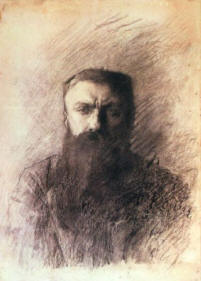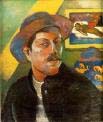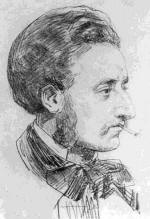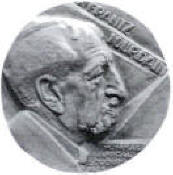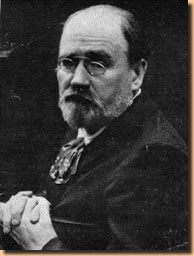Octave Mirbeau, Lover of JusticeAfter a half-century of neglect, there has finally come a belated recognition of the genius and modernity of Octave Mirbeau (1848-1917), the "lover of justice" who, according to Emile Zola, had "given his heart to the wretched of this world". It is high time that people begin to rediscover this immense, multiform, and surprisingly current work, of which only an infinitesimal part has been known until now. In his work – in imitation of his "gods", Auguste Rodin and Claude Monet – Mirbeau sought to revolutionize the way his contemporaries looked at the world. Mirbeau wants to open our eyes, force us to encounter beings and things, values and institutions, as they are, not as we have been conditioned to see them - or, rather, not to see them. Beginning in 1877, Mirbeau assigned to the writer the task of forcing those who were "willfully blind" to "look at Medusa straight on". Pamphleteer, art critic, novelist, and playwright, Mirbeau was above all else a great demystifier. In the eyes of "right-thinking people" and Tartuffes of every stripe, Mirbeau’s "crime" was to have compelled society to see itself in its hideous nudity and to be horrified at itself. Having been scandalized by everything that frustrated his demands for Truth and Justice, Mirbeau himself became scandalous in the eyes of the powerful, the people who, after his death, made Mirbeau pay dearly. In effect, for forty years, Mirbeau had unmasked, stigmatized, and – with jubilant ferocity – twisted into grimaces the faces of those whom an empty-headed, cretinous populace persisted in respecting: the demagogues, the political freebooters, the speculators and wheeler-dealers, the Stock Market pirates, the sharks of industry and commerce, the "moral monsters" of an iniquitous and repressive system called "Justice", the Church, charged with shaping souls, the swashbucklers of arts and letters, the puppets and blackmailers of a venal and desensitizing press, and finally, all the bourgeois who grew fat from the suffering of the poor, and who, lacking all pity, all artistic sensibility, and all capacity for individual thought, had – for their own intellectual and moral comfort – awarded themselves a good conscience that was ineradicable and homicidal. It was they who were the product of a moribund society in which everything worked in opposition to common sense and justice, in which, under the cover of a "democracy" or a "republic" consisting of an unscrupulous minority, exploited, crushed, alienated, and deformed with impunity the majority of citizens who had been reduced to the state of larvae. Society diluted genius, degraded art by subjecting it to the principle of "universal suffrage", transformed everything – people and things, talent and honor – into vulgar commodities subject to the inexorable law of supply and demand. Atop the ruins of human values, it raised altars to the single god of capitalism, a god with an inhuman face that presided over all the surface of the earth and turned it into a terrifying "torture garden" : The Golden Calf. Alas, Mirbeau’s message has lost none of its current relevance…(translated by Robert Ziegler)BIOGRAPHICAL NOTICEOctave Mirbeau (1848-1917), journalist, lampoonist, art critic, novelist and playwright, was one of the most likeable and original literary figures of the Belle Époque. After spending his childhood in a stifling village of the Perche, Rémalard, pursuing mediocre secondary studies at a Jesuit private school in Vannes which expelled him at the age of fifteen in more than suspicious circumstances, he dreaded and thought he was doomed to the deadly confinement of the village notarial practice when, two years after the traumatic experience of the 1870 war, he was tempted by a call from the Bonapartist leader Dugué de la Fauconnerie, former deputy of the Orne, who hired him as private secretary, took him to Paris and introduced him to L’Ordre de Paris, the official newspaper of Bonapartist “L’Appel au Peuple”. He then spent a long period as a “scribbler”, which he felt very guilty about: in turn, or in parallel, he played "the servant" (as private secretary to Dugué, then to Arthur Meyer, the editor of Le Gaulois), "the streetwalker" (as salaried journalist on L’Ordre, then L’Ariégeois, both Bonapartist, on the monarchist Gaulois and Grimaces, an anti-opportunist and anti-semitic newspaper – sadly !), and "the ghost writer" (he wrote dozens of books, novels and short stories, for a variety of employers, notably L’Écuyère, La Maréchale, Amours cocasses and La Belle Madame Le Vassart). It was only in 1884, after a devastating affair with a woman of easy virtue, Judith Vimmer (“Juliette” in Le Calvaire), that he concluded that he was a "failure", got his strength back in the wilds of Brittany and, back in Paris, embarked on the difficult journey of his “salvation”: he would start to use his pen, so brilliant and so uniquely effective, to serve the causes he believed in: social justice and promoting artists of genius. The first volume he published under his name in November 1885, Lettres de ma chaumière, a collection of short stories set in Normandy and Finistère, was intended as the antithesis of Alphonse Daudet’s niceness and painted a very dark portrait of mankind and society, which the three following, more or less autobiographical, novels, were to blacken further : Le Calvaire (1886), where he barely romanticized his affair with Judith ; L’Abbé Jules (1888), where, having experienced the "revelation" of reading Dostoïevsky, he plumbed the depths of psychology to describe a Catholic priest whose body and mind were rebelling against social oppression and the corruption of the Catholic Church; and Sébastien Roch (1890), an emotional account of "the murder of a child’s soul" by a Jesuit rapist set in the private school of Saint-François-Xavier in Vannes. In parallel, under his own name or a series of pseudonyms, he contributed to Le Gaulois, La France, L’Événement, Le Matin, Gil Blas, Le Figaro and L’Écho de Paris: there he launched into a number of artistic battles (he was the acknowledged champion of Rodin, Monet and the Impressionist painters and, later, of Van Gogh, Camille Claudel and Maillol) and political campaigns (he became closer to the anarchists and the scourge of boulangism, nationalism, colonialism, militarism and "bad shepherds" of all persuasions who exploited universal suffrage the better to fleece their flocks and were intent on crushing peole and making them stupid). In the 1890s, he went through a prolonged existential crisis, which coincided with a serious marital crisis (in 1887, he had braved the gossip and married a former minor actress and courtesan, Alice Regnault) and became convinced he was impotent. However, it was during those painful years that he published, in serial form, the first drafts of Le Journal d’une femme de chambre and Le Jardin des supplices 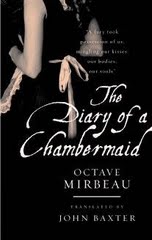 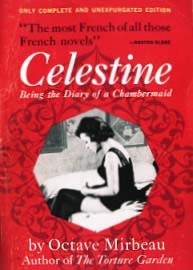
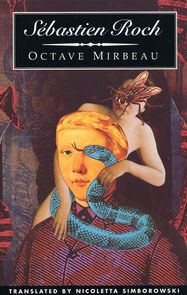
(under the title En mission), as well as an extraordinary pre-existentialist novel about the plight of the artist, inspired by Van Gogh, whom Mirbeau had just discovered : Dans le ciel (1892-1893). He also began a lengthy collaboration (lasting ten years) with the Journal and wrote a proletarian tragedy, on a subject close to that of Germinal, Les Mauvais Bergers, which was first performed by Sarah Bernhardt and Lucien Guitry in December 1897. 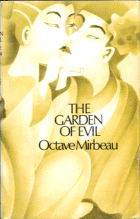
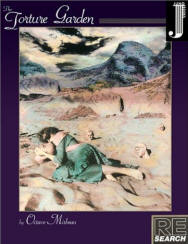
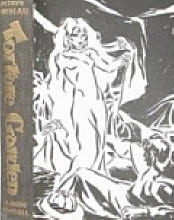
Torture gardenBut what was to enable Mirbeau to shake off his depression was his immersion in a socially useful activity, the Dreyfus affair, to which he dedicated himself with his usual generosity on November 28th, 1897, only two days after Émile Zola. He wrote the second "intellectuals’" petition: he went with Zola to his trial every day; he paid out 7.500 francs on his behalf and obtained 30.000 francs from Reinach to pay the various fines of the author of J’accuse; he took part in many dreyfusist meetings in Paris and the provinces, but most significantly he published in L’Aurore, the famous dreyfusist newspaper, around fifty columns, seeking to mobilize the working class and the intellectual professions and mocking the nationalists, clerics and anti-semites, making gleeful use of imaginary interviews. For more than a month he followed Alfred Dreyfus’ trial in Rennes with great indignation and returned to Paris in a desperate frame of mind after the absurd sentence. It was while under the influence of his deep pessimism that he successively published : Le Jardin des supplices(1899), a literary monstrosity consisting of a patchwork of earlier writings penned independently of one another and widely differing in tone ; Le Journal d’une femme de chambre (1900), where he denounced domestic service as a modern form of slavery, and exposed the unsavoury secrets of the bourgeoisie ; and Les 21 Jours d’un neurasthénique (1901), a collage of around fifty of cruel tales already published in the press over the previous fifteen years. In April 1903, he enjoyed a triumph with the first performance, at the Comédie-Française, of a major classic "comedy of manners", Les affaires sont les affaires, in which he trounced upstarts and attacked the absolute power of Mammon in the shape of a businesstycoon, who has become a classic character, Isidore Lechat. The play also triumphed in Germany, Russia, the United States and other countries. Having become rich, Mirbeau considerably reduced his journalistic output (though he wrote for six months for Jaurès’ L’Humanité in 1904) and abandoned the novelistic style inherited from the 19th century, which he had tried to revive by taking it out of its naturalistic rut: in 1907 he published La 628-E8, an account of his travels through Belgium, Holland and Germany, and whose heroine is his own motorcar; and, in 1913, Dingo, a Rabelaisian fantasy inspired by his dog. In December 1908, after a court order, he also staged, at the Comédie-Française, a vitriolic comedy, Le Foyer, which caused a scandal because it denounced the business activities of charities and the economic and sexual exploitation of teenage girls. More and more sick and bitter, he became prematurely almost incapable of writing (although he did a pamphlet on prostitution, L’Amour de la femme vénale, published after his death... in Bulgaria!) and retired to Triel, where he found solace from human turpitude in flowers and canvasses of his painter friends. The 1914-1918 war was the final straw for the impenitent pacifist, who had spent his whole life denouncing the criminal aberration of war and advocating Franco-German friendship. He died on his 69th birthday, on February 16th, 1917. A few days later, his treacherous widow published in Le Petit Parisien a pseudo-" Octave Mirbeau’s Political Legacy", a nauseating patriotic forgery concocted at her request by the renegade Gustave Hervé. The friends of the great writer denounced in vain this vile disinformation operation and it left an enduring stain on Octave Mirbeau’memory. In fact, he was to undergo a long period of purgatory, which was to last about sixty years. It is true that his two most famous novels are regularly republished, Les affaires sont les affaires was re-staged several times and between 1934-1936 ten volumes misleadingly titled Œuvres complètes were published. But only a small part of his vast output was generally known; no-one knew how to read Mirbeau, who had had various labels attached to him : absurd ones (naturalistic) or defamatory ones (pornographer, palinodist) ; as for academic and school textbooks, they simply ignored him, and only a few Anglo-Saxons devoted their theses to him. Things started to change towards the end of the 1970s, with the publication of his novels by Hubert Juin, in the "Fin de siècle" collection, then in the 1980s with the first French university research, and especially since 1990 : publication of his first biography, Octave Mirbeau l’imprécateur au cœur fidèle, and the first major overview of his campaigns, Les Combats d’Octave Mirbeau; the publication of about thirty volumes of previously unpublished writings (Dans le ciel, Contes cruels, Combats pour l’enfant, Paris déshabillé, Combats esthétiques, Lettres de l’Inde, L’Amour de la femme vénale, Chroniques du Diable, Amours cocasses, Noces parisiennes, Premières Chroniques esthétiques, various letters exchanged with Alfred Bansard, Claude Monet, Camille Pissarro, Auguste Rodin and Jean Grave...) ; organization of four international conferences, whose proceedings (Actes) were published; founding in 1993 of the Société Octave Mirbeau, which issues good-quality yearly publications Cahiers Octave Mirbeau; rapid expansion of university research, both in France and abroad; triumph of the stage revivals of Le Foyer and Les Affaires sont les affaires; numerous adaptations of his novels, tales and chronicles for the stage; publication of the first critical edition, through my own efforts, of Mirbeau’s Œuvre romanesque, Théâtre complet and Correspondance générale... Octave Mirbeau is now finally back in his rightful place: at the very forefront of French literature. The prototype of the campaigning, libertarian and individualistic writer, he is the great debunker of people and institutions dedicated to alienation, oppression and killing. He developed an aesthetic of revelation and gave himself the mission of "forcing the wilfully blind to look Medusa in the face". Accordingly he challenged not only bourgeois society and capitalism, but also the prevailing ideology and traditional literary forms, which help to numb individual conscience and to give a misleading and reductionist view of the human condition and society. He was particularly instrumental in the death of the so-called "realistic" novel. Rejecting naturalism, academism and symbolism, he followed a path between impressionism and expressionism, and many writers of the 20th century are indebted to him. Pierre MICHEL
|
||

